The next round of spring Assembly Series programs at Washington University in St. Louis will cover a variety of topics, from how society talks about contagious diseases to delving into major philosophical theory to the possibility of cloning a mammoth.
The first event is a panel discussion titled “Contagion and Culture: A Conversation about Ebola.”
Presented by the Center for the Humanities at Washington University, the panel, at 4 p.m. Wednesday, March 4, will discuss cultural as well as medical aspects of an Ebola outbreak. It will take place in the Bryan Cave Moot Courtroom in Anheuser-Busch Hall on the Danforth Campus. The event, like all Assembly Series offerings, is free and open to the public.
According to the World Health Organization, since March 2014 the Ebola virus has infected 22,000 West Africans and killed 9,000, prompting the agency to declare the outbreak as the “most significant health crisis in modern history.”
But, as Priscilla Wald outlines in her book, “Contagious: Cultures, Carriers, and the Outbreak Narrative,” how we as a society talk about infectious diseases has serious consequences. These “outbreak narratives” affect survival rates and contagion routes; upset economies; and promote or mitigate the stigmatizing of individuals, groups, locales, behaviors and lifestyles.
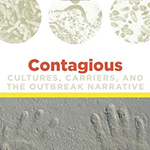 Wald, PhD, professor of English and of women’s studies at Duke University, will participate in this interdisciplinary discussion, which aims to deepen and widen the context for understanding such outbreaks.
Wald, PhD, professor of English and of women’s studies at Duke University, will participate in this interdisciplinary discussion, which aims to deepen and widen the context for understanding such outbreaks.
“In addition to the public health and medical aspects of this crisis, panelists will explore how discourses about race, nation and modernity shape the response and historicize the approach to contagious disease,” said Rebecca Wanzo, PhD, associate professor of women, gender and sexuality studies in Arts & Sciences, and associate director of the humanities center.
Joining Wald as panelists are:
- Adia Benton, PhD, assistant professor of anthropology at Brown University;
- Steven Lawrence, MD, assistant professor in the Department of Medicine-Infectious Disease at Washington University School of Medicine in St. Louis; and
- Corinna Treitel, PhD, associate professor of history in Arts & Sciences at Washington University.
Shanti Parikh, PhD, associate professor of anthropology and of African and African-American studies, both in Arts & Sciences, will moderate the forum. She is the author of “Regulating Romance: Youth Sexuality and Moral Anxiety in Uganda’s Time of AIDS.”
The panel is the first in what is expected to be an annual series organized by the humanities center that places humanists in conversation with people in other fields to address contemporary events, Wanzo said.
Other spring programs
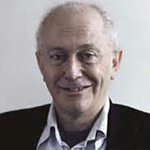 David Sedley
David Sedley
What is Plato’s Theory of Forms?”
4 p.m. Thursday, March 19, Anheuser-Busch Hall, Bryan Cave Moot Courtroom (Room 310)
The annual John and Penelope Biggs Lecture in the Classics will present Cambridge philosopher Sedley, PhD, who is among the most eminent scholars of the ancient Greek philosopher Plato.
According to Sedley, Plato is one of the most influential philosophers in the Western canon, and his theory of forms his most iconic doctrine, which enables us to understand abstract qualities such as equality or goodness. Sedley’s presentation will focus on illuminating the theory’s meaning, motivation, attractions and complexities.
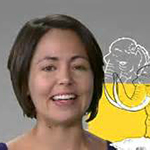 Beth Shapiro
Beth Shapiro
“How to Clone a Woolly Mammoth”
5 p.m. Tuesday, March 31, Knight/Bauer Hall, Emerson Auditorium
Evolutionary molecular biologist, MacArthur “genius” fellow and this year’s Ferguson Science Lecturer Shapiro, DPhil, sums up the mission driving her research:
“Ancient DNA gives us new insight into the most fundamental processes of evolution,” she said. ” A better picture of the past may help us save species today.”
Equipped with powerful new tools, Shapiro traces extinct species throughout their time on Earth and aligns the process with concurrent environmental changes, allowing unprecedented understanding of when a species’ genetic diversity changed and what changed it.
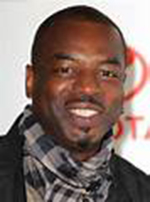 LeVar Burton
LeVar Burton
“The Power of Storytelling”
7 p.m. Thursday, April 2, Graham Chapel
In 1983, “Roots” actor Burton took on a vastly different yet signficant role: host of the PBS children’s program “Reading Rainbow.” Decades later, “Reading Rainbow,” through the telling of great stories, helped raise a generation of literate Americans by using what was then the most popular technology of its day, television.
Fast forward to 2015. Burton is using that same concept to help educate the next generation of readers, the “wired generation,” via a mobile app available through readingrainbow.com.
This program is presented by the Association of Black Students as part of its annual commemoration of Martin Luther King Jr. It is funded by Student Union and is part of the SU Speaker Series.
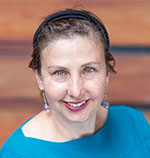 Carla Power
Carla Power
“Reading the Quran at Starbucks: An American Secular Feminist and a Traditional Muslim Scholar Find Commonalities”
5 p.m. Tuesday, April 14, Simon Hall, May Auditorium
For decades, veteran journalist Power has been covering the Middle East, telling stories about its people, traditions, cultures and conflicts. Now, the Time correspondent has written an engrossing account of her yearlong undertaking to learn the Quran, the central religious text of Islam, guided by her madras-trained Muslim friend.
The book, “If the Oceans Were Ink,” reveals what can happen when open-minded people break through stereotypes and misperceptions and search for common ground. This is the Rabbi Ferdinand Isserman/Phi Beta Kappa Lecture. A book-signing will precede the talk at 4 p.m. on April 14.
For information about these or other programs, visit assemblyseries.wustl.edu or call 314-935-4620.